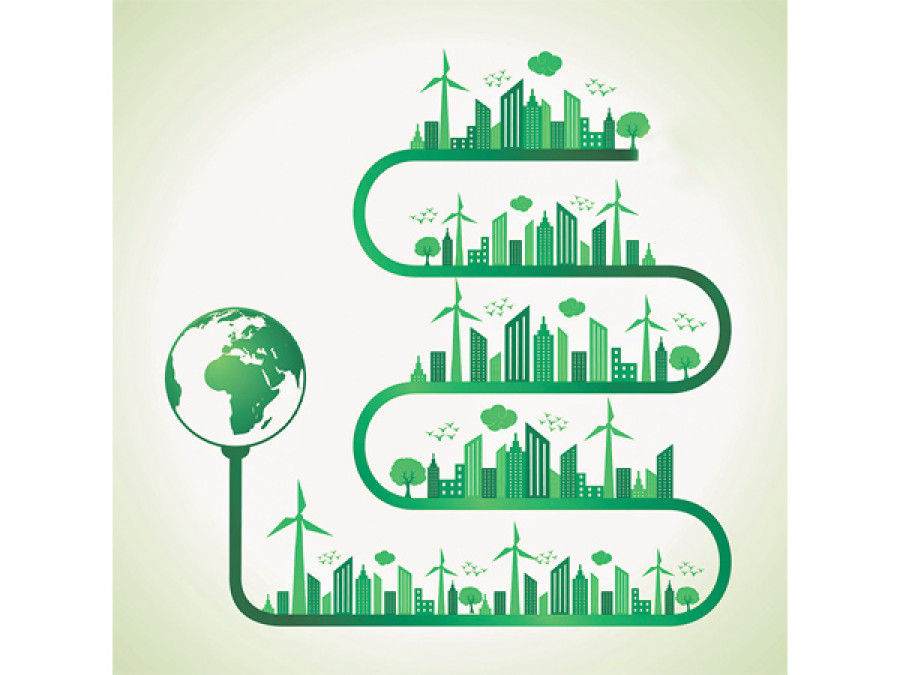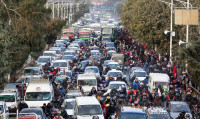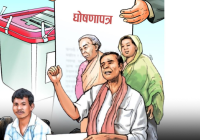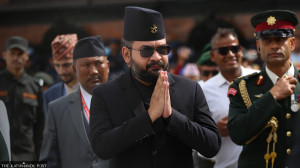Opinion
Green tape
The government needs to take up the smart city initiative with a fanatical zeal
COP21, the 21st session of the Conference of the Parties to the United Nations Framework Convention on Climate Change (UNFCCC), is just around the corner. While preparations for the Paris summit are underway, I want to make an outlandish proclamation that has been on my mind for some time: Human beings are not mammals!
Mammals and humans are not the same, at least when it comes to their relationship with the environment. Mammals instinctively develop a natural equilibrium with the surrounding environment while humans tend to destroy their habitat and move to a new area only to repeat the same pattern. And it seems that this vicious cycle continues until the environment is completely destroyed and spiritual beings are extinct. In case you did not know, there is another organism on this planet that follows the same pattern—a virus.
What you just read is a slightly edited dialogue from the 1999 blockbuster movie The Matrix. The movie, directed by the Wachowski brothers, depicts a dystopian future where the perceived reality is a complex computer simulation called the Matrix. Sentient machines have created the simulation to subdue humans. The inhabitants of Zion, led by Morpheus, are planning a revolution against the machines because the state is now polarised and dysfunctional. However, before the machines can be outdone, Morpheus has to find Neo (the chosen one) who, according to the oracle’s prophecy, is the only one capable of defeating the Matrix. Besides the philosophical and technological sophistication, the epic movie has an important message: The world is too arrogant to know that it is heading towards destruction.
Pollution crisis
Indeed, the world as we know it, is heading towards environmental havoc. According to US-based think tank Worldwatch Institute, human beings are driving the planet’s resources at a reckless rate, inviting collapse of civilisation. Furthermore, human activity is having such a devastating effect upon the planet’s ecosystems that everything vital for our survival is on the verge of being ruined. The situation is getting so bad that other international agencies are also worried.
The United Nations says environmental degradation is the biggest danger faced by humanity. Pollution affects more than 100 million worldwide, and unclean drinking water kills 5,000 people every day. The oceans, a harbinger of our own well-being, are increasingly becoming acidic due to greenhouse emissions from fossil fuel. The number of cars in the world is expected to increase to 1 billion by 2030 doubling the pollution level, which is not good news unless the cars are electric. According to the United Nations Intergovernmental Panel on Climate Change, the global annual per capita emission would have to be reduced from the current 5 tonnes to less than 1 tonne by 2075.
At home, Kathmandu is facing a pollution crisis. Empirical evidence shows that environmental chaos has firmly established itself in the city for quite some time, at least when there is no shortage of fossil fuels. The World Bank estimates that air pollution in the metropolis has resulted in about 19,000 cases of asthma and hundreds of cases of bronchitis and other health-related disorders, and fossil fuel-guzzling vehicles, it seems, are the biggest culprit.
Smart cities
The Nepal government is preparing to attend COP21, a historic event that will bring global leaders and citizens from 190 countries to finalise an agreement intended to limit human influence on the climate. For the summit, the Ministry of Science, Technology and Environment has prepared a 15-page-long draft national agenda that focuses on adaptation, loss and damage, climate finance, mitigation, technology transfer and capacity building measures.
The ministry seems to have done its homework well, but what Nepal really needs is a deeper understanding of the natural world in order to develop policies and programmes necessary to help the ecosystem adapt to the changing climate. Instead of re-inventing the wheel, Nepal can learn from the advanced countries that have been establishing smart cities. Like many developed countries, the government should provide purchase and tax incentives to encourage the populace to switch to electric vehicles. Slashing taxes on electric vehicles could be a good place to start.
The concept of the smart city was established in South Korea at the beginning of the 21st century with the U-Korea project. A smart city is a city that is resilient and continually rethinking its approach by exploring new technological solutions and methods of governance. Sebastien Duchemin of Sopra Steria Consulting prescribes a more radical smart city approach: “Rethinking an area, a city, a village, or a district by complementing the social, urban planning, and political vision with a DIGITAL vision.”
Time to act
Duchemin recommends developing two forms of intelligence. First, “equipping urban infrastructures with an advanced data collection and processing capability in order to enable urban systems to self-regulate and anticipate problems”. Second, “taking advantage of accelerating capabilities and digital agility to equip the city with a cognitive intelligence that allows the user to interact with their environment”.
If the government does not take up
the smart city initiative with a fanatical zeal and correct the blunders on the ecological front, Kathmandu can possibly emerge as the sickest metropolis in the world. The government needs to converge digital, urban development and environmental policies into a smart city policy. The time has come for the political parties to deliver results on the economic and environmental fronts because political frustration among the youth is at an all-time high, and citizen faith in the political parties is at an all-time low.
And to end, the ecological disaster in Kathmandu reminds me of a thought-provoking quote by American actor Ian Somerhalder that goes something like this: “The environment is in us, not outside us. The trees are our lungs, the rivers our bloodstream. We are all interconnected, and what you do to the environment ultimately you do to yourself.” Wisdom that has to be internalised by the Ministry of Science, Technology and Environment.
Shah is the co-author of ‘Strategic IT Planning for Public Organisations: A Toolkit’ published by the United Nations in 2009




 8.12°C Kathmandu
8.12°C Kathmandu









